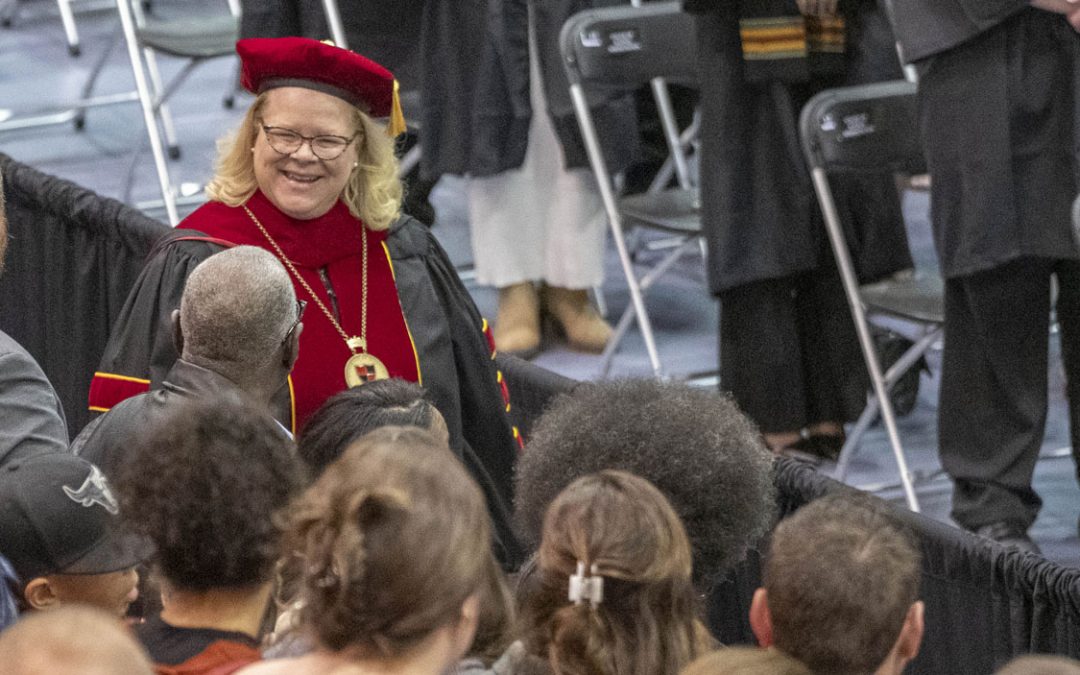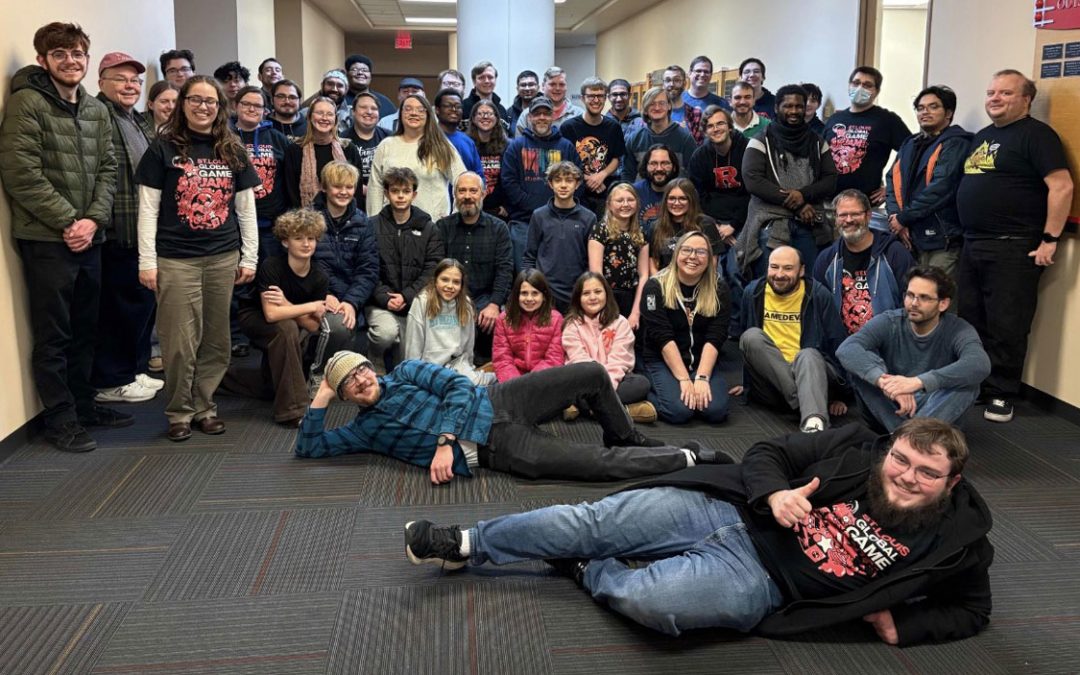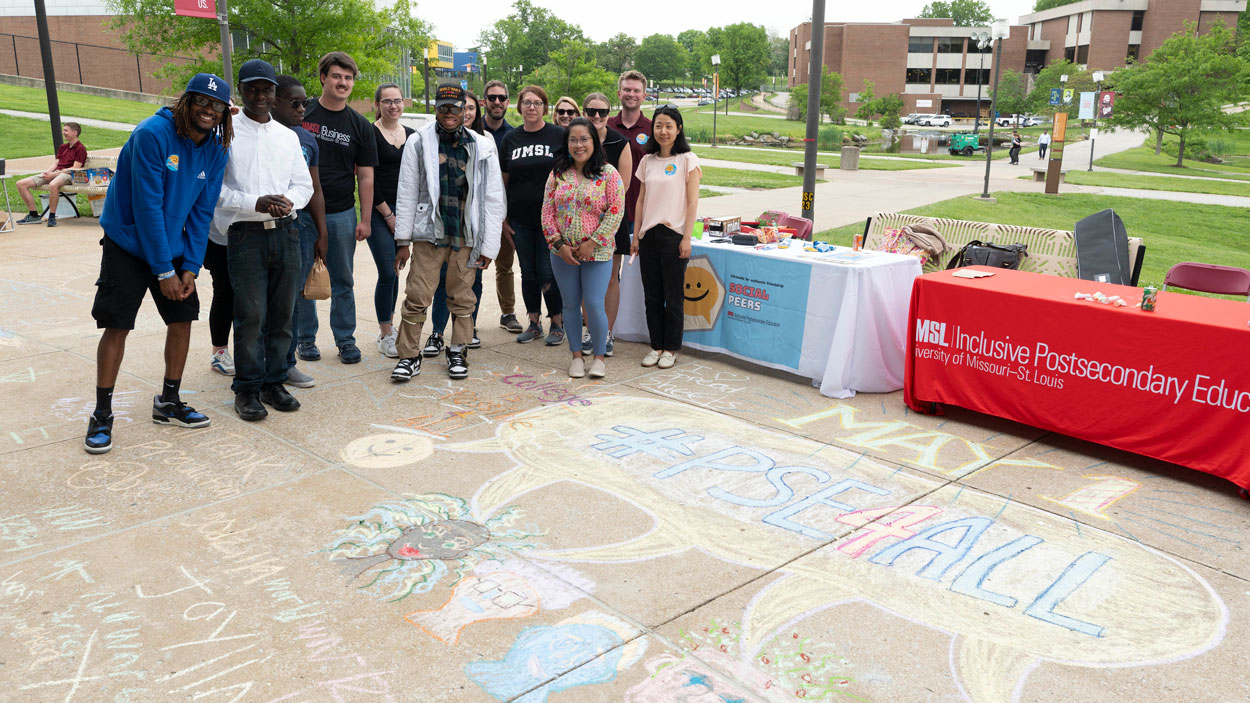
UMSL students, faculty, staff and community members celebrated Postsecondary Education for All Day on May 1 with a chalking event on the patio outside of the Millennium Student Center. Wen Zeng (far right), senior program and project support coordinator for the College of Education’s Office of Inclusive Postsecondary Education, led the initiative to recognize the day in Missouri. (Photo by Derik Holtmann)
Over the course of two hours Wednesday afternoon, the concrete patio behind the Millennium Student Center at the University of Missouri–St. Louis was utterly transformed.
Around two dozen UMSL students, faculty and staff turned the blank, pallid gray canvas into a chalk mural bursting with color and creativity. The patchwork motif included flowers, impressionistic self-portraits and even a Poké Ball. At the center of the mural, a large design read, “May 1 #PSE4ALL.”
The chalking event, and the message at the center of it, was a celebration in honor of Missouri Gov. Mike Parson’s recent proclamation that May 1, 2024, will now be known as Postsecondary Education for All Day. The College of Education’s Office of Inclusive Postsecondary Education (OIPE) and UMSL Social Peers organized the festivities.
“It’s just very exciting because not every state is doing this,” said Wen Zeng, senior program and project support coordinator for OIPE. “We are part of the first three states to get this kind of acknowledgment. This is not just for us. This is for all the postsecondary education programs. Also, this is an acknowledgement and celebration of students with intellectual and developmental disabilities.”
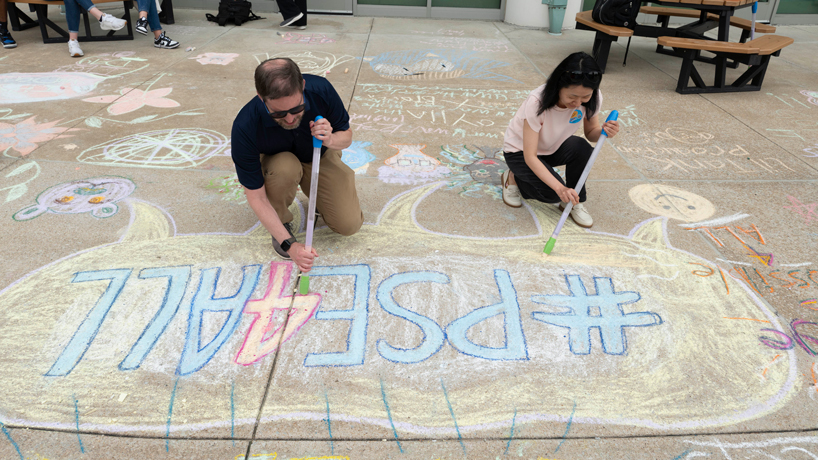
Jonathan Lidgus, director of the Office of Inclusive Postsecondary Education, and Wen Zeng add finishing touches to a chalk design. (Photo by Derik Holtman)
UMSL Social Peers co-directors Lindsay Athamanah and Madeline Siener echoed that sentiment.
“I think a lot of people don’t know about postsecondary education programs, so it’s nice to get some publicity so more people know and understand that college is an option for everyone, no matter their abilities,” said Siener, who also serves as a coordinator of campus inclusion in UMSL OIPE.
UMSL has been a trailblazer in postsecondary education for students with intellectual and developmental disabilities since the founding of the Succeed Program in 2013. Over the past decade, it has grown exponentially. Now, the OIPE oversees Succeed, Succeed+ and Link programs, which help students develop academic, living and vocational skills as they work toward a two-year Chancellor’s Certificate, credentials or a degree program of their choice.
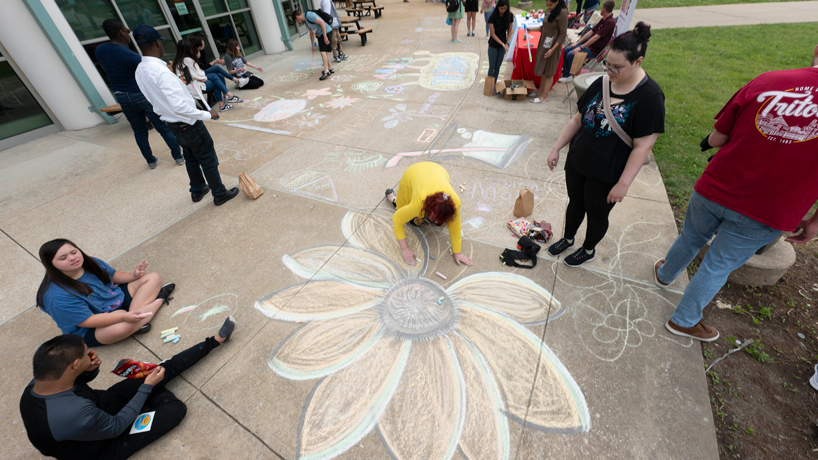
Future UMSL student parent Jane Leahy-Smith (center) chalks a sunflower during the event. (Photo by Derik Holtmann)
In recognition of that continued success, Zeng led the initiative to recognize Postsecondary Education for All Day in Missouri. Her effort is part of a larger campaign by Think College, a national coordination center for inclusive postsecondary education funded by the U.S. Department of Education. The center has pushed for this type of recognition for the past three years, and the campaign is beginning to gain momentum.
“In the past, there are two other states that have done this kind of proclamation, Minnesota and North Carolina,” Zeng said.
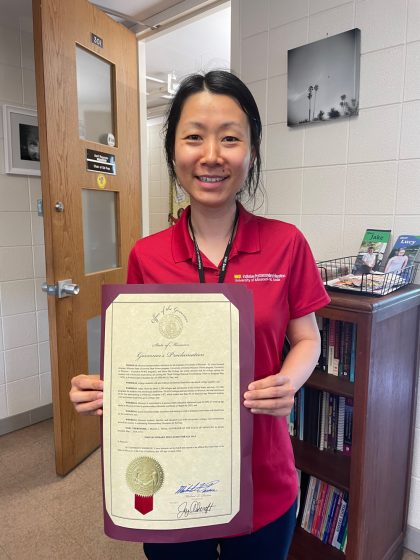
Wen Zeng shows off the official proclamation from Missouri Gov. Mike Parson. (Photo courtesy of Wen Zeng)
Zeng was eager to answer Think College’s call to action. Taking part in Disability Rights Legislative Day at the Capitol on March 13 inspired her as well. She and two Succeed students traveled to Jefferson City and set up a table where they offered information about OIPE’s programs and answered questions.
Shortly after the trip, Zeng applied for official recognition by the governor’s office.
She stressed the importance of Missouri’s four postsecondary education programs: Succeed at UMSL, the PAWS program at the University of Missouri–Columbia, the Bear Power program at Missouri State University and the THRIVE program at the University of Central Missouri.
These programs play a critical role in empowering individuals with disabilities to pursue their educational and career aspirations, while also fostering independence and promoting success within communities across the state. Athamanah, who is also an assistant professor of special education, noted that the programs also benefit students without disabilities, who improve their awareness and understanding of disabilities.
Ideally, the proclamation will lead to broader consciousness among the public and to more collaboration between the universities and the legislature on postsecondary education.
“I think this is the first step for us to get more legislators and policymakers to know about programs like ours,” Zeng said. “This just helps the community increase awareness. They can know that everyone has opportunity and this is an option – you can go to college.”













